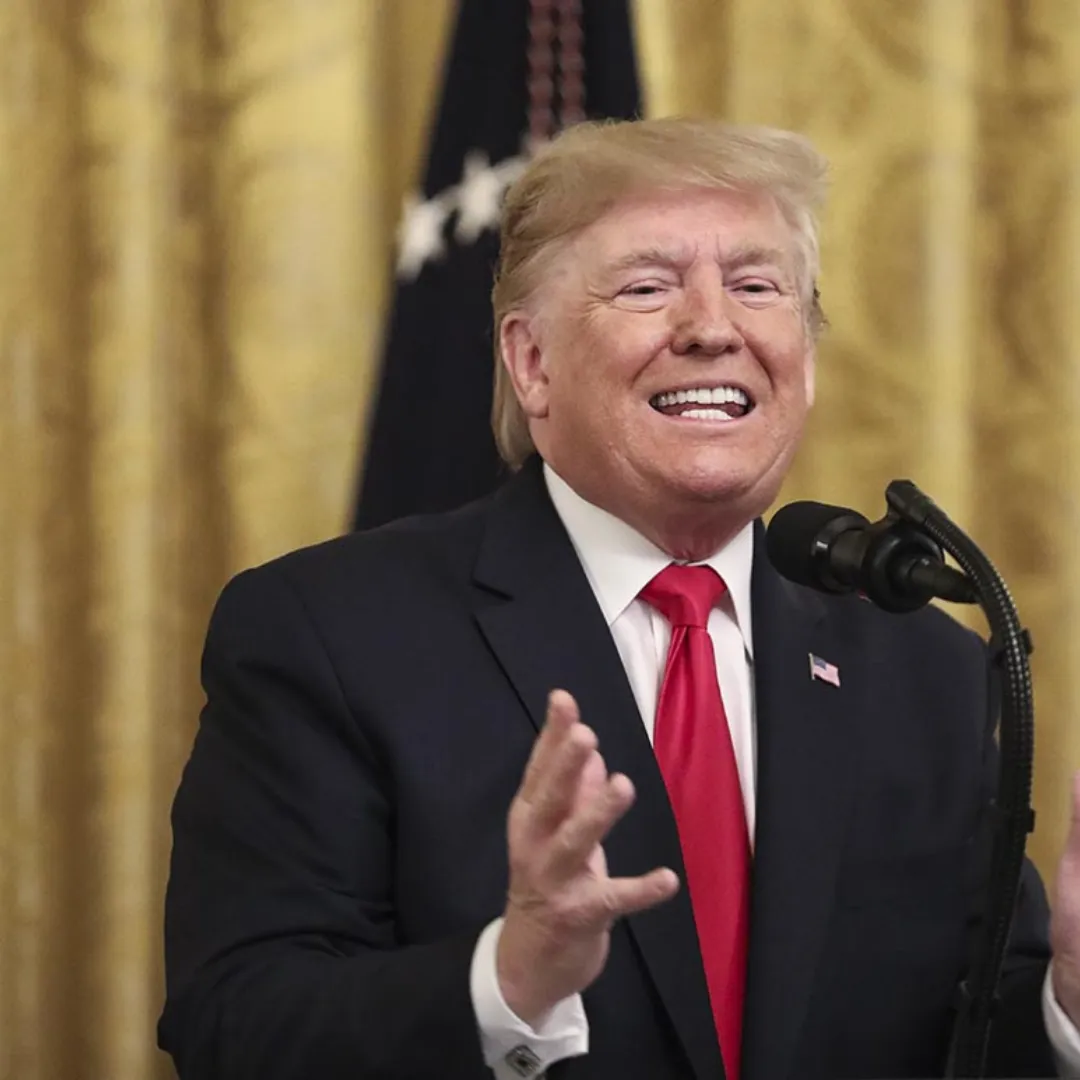
Senator Ruben Gallego (D-Ariz.) has strongly criticized a recent push by Senate Republicans to rush the passage of a key stablecoin bill, accusing them of attempting to force a vote before fully negotiating with Democrats.
In a fiery interview released on Wednesday, Gallego expressed frustration with what he described as an underhanded attempt to pass the bill without sufficient bipartisan input, ultimately accusing Republicans of trying to "jam" Democrats into supporting legislation that is incomplete and flawed.
“You can’t throw us in the corner,” Gallego said in the interview with MeidasTouch, which was released on Tuesday. “You can’t try to f‑‑‑ us and then say like, ‘Hey, deal with it.’ That’s just not going to work, especially when you still need our votes no matter what.”
Gallego’s remarks come after several Democrats, including himself, withdrew their support for the GENIUS Act, which seeks to create a regulatory framework for payment stablecoins.
The bill, which had initially received bipartisan support, became the subject of a bitter dispute between Republicans and Democrats over the pace of negotiations and the specifics of its provisions.
The GENIUS Act, which stands for General Stablecoin and Cryptocurrency Regulation and Use Stabilization Act, was intended to provide a comprehensive set of guidelines for stablecoins—a category of cryptocurrency whose value is pegged to an underlying asset, like the U.S. dollar, to maintain a stable price.
The bill aims to establish clear rules around the issuance and use of stablecoins, which have become increasingly popular as digital currencies. Gallego and eight other crypto-friendly Democrats had initially backed the bill and voted in favor of it when it passed out of the Senate Banking Committee in March.
However, their support for the bill quickly evaporated after Senate Majority Leader John Thune (R-S.D.) moved to expedite the vote last week, effectively cutting short the remaining negotiations with Democrats.

Gallego, who serves as the ranking member on the Senate Banking Committee’s digital assets subcommittee, made it clear that his initial support for the GENIUS Act was rooted in a spirit of bipartisanship.
He said that he and his colleagues had voted for the bill out of a desire to work collaboratively with Republicans on a piece of legislation that would bring much-needed clarity to the rapidly growing stablecoin industry.
However, Gallego said that the new language released for the floor vote left him and other Democrats feeling betrayed and blindsided.
“All of a sudden, the language changed,” Gallego explained. “They backtracked on some of the stuff we had already approved. They weren’t even moving forward with further legislation. And then they announced the date of the first vote.”
This, Gallego argued, was a deliberate attempt to force Democrats into a difficult position, with Republicans trying to pass a bill that was not fully negotiated and did not address key issues that Democrats had raised in earlier discussions.
The push to advance the GENIUS Act to the Senate floor without addressing these concerns led Gallego and the eight other Democrats to withdraw their support. Gallego and his colleagues pointed to several major issues with the bill, particularly its lack of strong provisions on anti-money laundering (AML), national security, and other key regulatory concerns.
Gallego emphasized that these provisions were vital to ensuring the stability and safety of the stablecoin market, which has seen explosive growth in recent years but is still viewed by many as under-regulated and potentially ripe for abuse.
“I just cannot allow them to just jam us and pass bad legislation that has open loopholes that would create really bad situations for consumers, for investors, all these kinds of things,” Gallego said, speaking about the bill’s potential shortcomings.

He stressed that it was critical for the bill to address these issues properly before it moved forward, particularly given the growing role stablecoins play in the global financial system.
The senator's comments reflect a larger rift between Republicans and Democrats over the regulation of cryptocurrencies and digital assets. While Republicans have generally supported a hands-off approach to regulating digital assets, viewing them as a driver of innovation and economic growth, Democrats have advocated for stricter oversight to protect consumers, prevent money laundering, and ensure that the cryptocurrency market operates transparently and fairly.
Gallego and other Democrats involved in the negotiation of the GENIUS Act argued that the bill did not adequately address these concerns, and they were particularly alarmed by the lack of safeguards around stablecoins.
“We’re here to work,” Gallego said, his voice firm. “We’re here to speak and try to come up with a good bipartisan bill. But don’t try to f‑‑‑ us on it. That’s not going to happen.”
The senator’s strong language was a clear indication of his frustration with what he saw as an attempt by Republicans to push through legislation without sufficient input from the Democratic side. He made it clear that he would not allow the bill to be passed in its current form, especially if it left critical issues unresolved.
The growing tension between the two parties over the stablecoin bill highlights the challenges lawmakers face in trying to regulate the fast-evolving world of digital currencies.
Stablecoins, in particular, have become a flashpoint in the debate over cryptocurrency regulation. While proponents argue that stablecoins provide a stable and efficient means of conducting transactions, critics worry that their unregulated nature could lead to widespread financial instability, particularly if they are not properly backed by reserves or if they are used for illicit activities.

The GENIUS Act was originally seen as a potential breakthrough in the effort to regulate stablecoins and other digital assets, with support from both Republicans and Democrats.
However, as the bill advanced through the legislative process, it became clear that there were deep divisions between the two parties over the specifics of the regulation.
Republicans have been eager to push the bill forward quickly, citing the need for clear rules in the cryptocurrency market, but Democrats like Gallego have insisted that the legislation must be more robust and comprehensive before it can move forward.
The clash over the GENIUS Act is just the latest example of the broader debate in Washington over cryptocurrency regulation. While the U.S. has taken a relatively hands-off approach to digital currencies compared to other countries, the issue is becoming increasingly urgent as cryptocurrencies and stablecoins gain prominence.
The Biden administration has made it clear that it sees cryptocurrency regulation as a priority, and the president has called for stronger oversight to ensure that the sector is not used for money laundering or other illicit activities.
Despite the differences between the two parties, there is some common ground on the need for clear rules and regulations in the cryptocurrency market.
Both Republicans and Democrats agree that the current regulatory framework is inadequate and that stablecoins and other digital assets must be properly overseen to protect consumers and investors.
However, as Gallego’s comments make clear, the devil is in the details. Democrats are pushing for stronger safeguards and provisions that would ensure the stablecoin market operates transparently and responsibly, while Republicans are more focused on maintaining a light regulatory touch that encourages innovation.

In the meantime, the future of the GENIUS Act remains uncertain. With Gallego and other Democrats withdrawing their support, Republicans may have to go back to the drawing board to resolve the disagreements and find a way to pass the bill that satisfies both sides.
For Gallego and his colleagues, the stakes are high: they are determined to ensure that any legislation passed on stablecoins is fair, effective, and protects consumers from potential abuses. For Republicans, the challenge is to balance their desire for quick action with the need for comprehensive and thoughtful regulation.
As the debate over the GENIUS Act continues, it is clear that the future of cryptocurrency regulation in the U.S. will depend on the ability of lawmakers to bridge the divide between the two parties and come to a consensus on how best to regulate the growing digital asset market.
The outcome of the battle over stablecoins will have far-reaching implications for the future of cryptocurrency in the U.S. and around the world.



